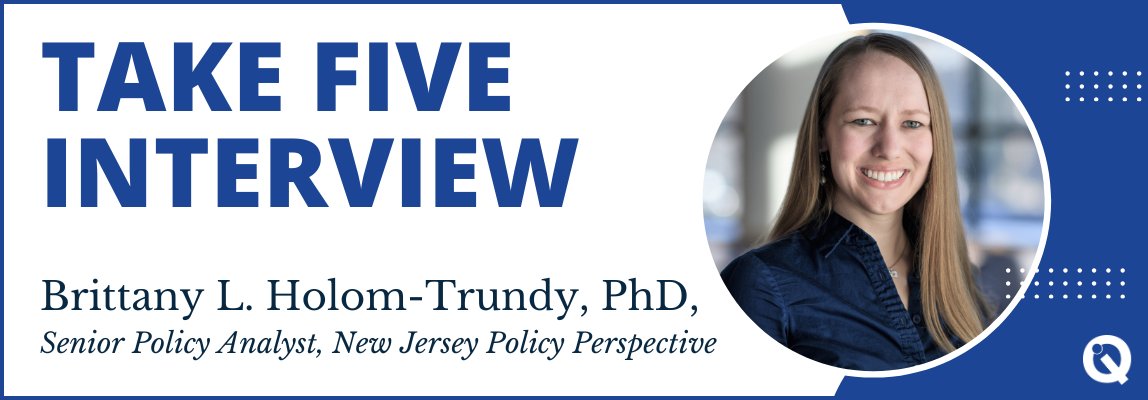New Jersey Policy Perspective is a member of the Quality Institute’s Consumer Council.
How should the New Jersey state budget be changed to help more people access care and meet social needs to promote a healthier state?
Our state budget reflects the values we prioritize. A key lesson we must apply is the importance of proactively investing in health care. Yet the funding for that investment is currently being threatened at the federal level, with billions of dollars at stake. So it is essential that we identify revenue and plan our state budget in such a way that we can continue to commit state funding to our essential health programs and coverage – like Cover All Kids – and ensure that everybody has access to affordable coverage and care through uncertain times. With the looming federal cuts we know more people will be uninsured and relying on programs like Charity Care, so that means leaders will need to increase support, both in the health care setting and through anti-poverty programs, that helps residents who are starting to fall through gaps and may not have the coverage to pay for all of the care they need. And it also means dedicating funding wherever possible to keeping both data and facilities secure so that no one fears seeking care.
If federal Medicaid and TANF funds are cut, what budgetary changes should the state make?
It’s not just about the billions we’d lose in federal dollars. If coverage is reduced, health outcomes worsen — putting even more pressure on state budgets to address those health issues. We’d be pushed back into a reactive care system, which is both inhumane and inefficient. We must ensure the state has the resources to fill these gaps. The key challenge is identifying sustainable revenue sources so we can continue improving quality of life and standard of living with a focus on investing in those who may be struggling to get by now.
What systemic changes should be on the table in this new policy environment?
The baseline characteristics of our health care system, public health, and our communities are being challenged in ways that we have not seen in a very long time. A key aspect of addressing these issues and a key systemic change is going to be aligning in communication. That means figuring out which websites people are using and what language they’re using. We need health care that meets residents’ daily realities.
An example. We can pour millions into a new hospitals and doctor offices and in research. But if residents can’t get coverage, they will avoid seeking care. If they have to work long hours to pay their bills, they won’t have time to see a doctor. If we truly want to improve health and advance the health care system, we need to be thinking about how the world within the system is shifting.
How does New Jersey Policy Perspective turn research into policy advocacy?
The key is strong community connections. We use data to inform policy, but we always ground it in the lived experiences of real people. We work with diverse community partners to understand what’s happening on the ground. Yes, we’re data nerds — but we see every number as representing someone’s story. That’s how we ensure our recommendations are meaningful and actionable.
Can you describe an experience that shaped who you are today?
One pivotal moment was when I went to the ER in extreme pain and was initially dismissed. I had an ovarian torsion—a serious emergency—but wasn’t taken seriously until I went into shock and needed emergency surgery. That experience, combined with navigating the maze of copays and insurance, was a wake-up call. It showed me how poorly we understand women’s health and reproductive health—and the daunting financial side of care. That feeling of helplessness fuels the empathy I bring to this work every day.

